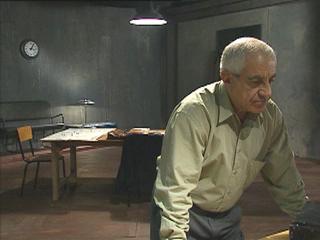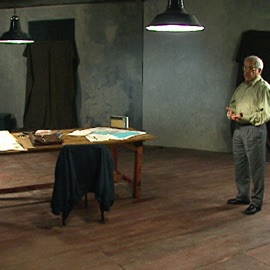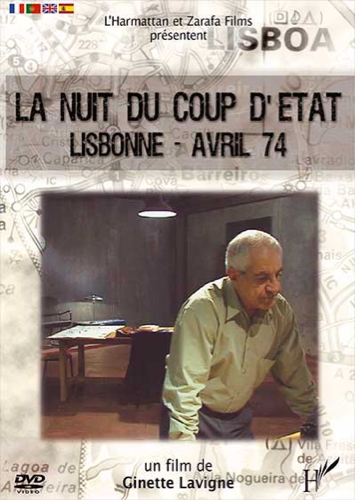La Nuit du coup d'État - Lisbonne, avril 1974
-
Réalisé par Ginette Lavigne • Écrit par Ginette Lavigne
-
Belgique, Portugal, France • 2001 • 57 minutes • Beta numérique • Couleur
- Réalisation :
Ginette Lavigne - Écriture :
Ginette Lavigne
- Production (structure) :
Les Films du village - Coproduction :
INA - Institut National de l'Audiovisuel, Nord Films, LX Filmes - Diffuseur :
Cityzen Télévision, RTBF - Radio Télévision Belge Francophone - Participation :
CNC, Procirep - Ayant droit :
Les Films du village
- N° ISAN :
non renseigné
Résumé
Le 25 avril 1974, au Portugal, un coup d'État militaire organisé par de jeunes officiers regroupés dans une organisation clandestine – le Mouvement des Forces Armées (MFA) – renversait le gouvernement de Marcelo Caetano, le successeur de Salazar. Comment un coup d'état mené à son terme par de jeunes officiers a-t-il pu ouvrir la voie à un mouvement populaire aussi puissant et inattendu ? Otelo de Carvalho qui a conçu et écrit le plan des opérations, explique et décrit en détail la technique du coup d'État. Ses interventions portent principalement sur la stratégie mise en œuvre : l'élaboration du plan et la manière dont il a dirigé le coup d'État. Il explique en détail, de combien de forces il disposait, comment il s'est assuré des appuis, quels étaient les objectifs prioritaires, comment il a planifié leur occupation, comment les différentes unités communiquaient entre elles, etc. Le plan manuscrit des opérations rédigé par Otelo de Carvalho : "plano geral das operaçes – viragem historica" (plan général des opérations – virage historique) ainsi que des cartes servent de base à cette démonstration
Portugal, April 1974 a military coup organised by young officiers gathered in an underground organisation – the Movement of Armed Forces – (MAF) overthrew the government of Macelo Caetano, who had succeeded Salazar. How could this coup, carried out by some young officers, have opened the way to such a powerful and unexpected popular movement ? Otelo de Carvalho, who designed and drew the plans of the operations, explains and describes the technique of the "coup d'État". He mainly talks about the strategy he used, how he conceived the plan and how he led the operations. He gives a detailed account of the forces he could rely on, the different helps he could count on, what his priority targets were, how he planned their occupation, how the different units communicated together, just to cite a few. The plans of these operations hand-written by Otelo de Carvalho – plano geral das operações, viragem historica (general plans of operations, a historical turning point) – as well as maps sustain his demonstration
Mot(s)-clé(s) thématique(s)
Sélections et distinctions
- 2002 • Images en bibliothèques • Paris (France) • Film soutenu par la Commission nationale de sélection des médiathèques
- 2001 • FID (Festival International du Documentaire) • Marseille (France) • Prix de la Compétition Française
Comment avoir accès au film ?





